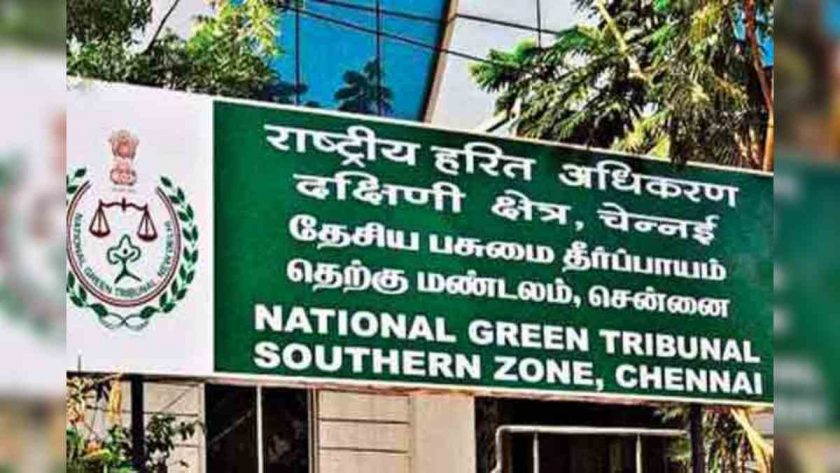Rising incompatibility of the National Green Tribunal
In recent years, a steady decline in the quality of decisions from the National Green Tribunal (NGT) was seen.
Two retired IAS officers and one retired Indian forest service officer (IFS)
The central government in December 2020 appointed new experts as members of the National Green Tribunal (NGT). They include two retired IAS officers and one retired Indian forest service officer (IFS). This is the addition of two former Indian forest service officers who currently function as members of the court.

Honest and competent Bureaucrat
A case example is a recent appointment (because of the stay) of Girija Vaidyanathan, former Tamil Nadu’s head secretary, to the position of the expert member, National Green Tribunal-NGT, Chennai Bench. Vaidyanathan is probably an honest and competent bureaucrat, but he still does not qualify for posts, which require technical expertise.
With this latest round, all members of the National Green Tribunal NGT expert have retired IAS or IFS officers. This will have important implications on the functional way of NGT.
Achieve by giving our country to Babus
Recently, the prime minister made a statement in Parliament which rocked the IAS officers. In his speech, he stated, “If someone becomes an IAS he will do everything like running the fertilizer industry, the chemical industry, or flying a plane. will we achieve by giving our country to babus?”

Someone can debate whether all departments must be led by IAS officers, but as far as National Green Tribunal NGT, the Cabinet appointment committee led by the Prime Minister has found since 2014, which is only retired bureaucrats owned by IAS or IFS as competent to be called “experts” in the environmental field.
Category of Expert Members
National Green Tribunal NGT ACT, 2010, pondered that experts of the tribunal can be from two categories:
First, those who have a degree in Master of Science with Ph.D. or Master of Technology along with experience in the environmental field.
Dealing with environmental problems in the central or state government
The second are those who have “fifteen years of administrative experience including five years dealing with environmental problems in the central or state government”. If someone goes with the qualification determined for the second category, it is clear that almost every IAS / IFS Officer who has placed in two decades in services will be eligible as ‘experts’ in the environmental field.

Nation’s scientific and technical capacity
This is indeed a sad reflection of the nation’s scientific and technical capacity if the central government cannot find anyone who has a master of science with at least a Ph.D. And those who have an academic background are chosen as “experts”.
Complex environmental problems
It is important to highlight that until 2014, appointed expert members consist of professors, academics, and only a few retired bureaucrats. This varied composition ensures that National Green Tribunal NGT is able to prosecute complex environmental problems and create new environmental jurisprudence which is the determination of precedents not only in India but also globally.
Importance of detailed scientific assessments
National Green Tribunal NGT through a series of assessments not only ensures that environmental law is considered serious but also emphasizes the importance of detailed scientific assessments and previous studies. Concepts such as “cumulative impact assessment” additional pollution studies are part of the decision-making process. For this reason, The National Green Tribunal NGT became an institution that even Western countries wanted to replicate.

Declination in quality decisions
Unfortunately, in recent years there seems to be a steady decline in the quality of decisions from National Green Tribunal NGT – most cases dismissed on hyper-technical land or NGT has refused to try with the benefits of the case.
Failure to conduct a service-based review
NGT’s reluctance in considering cases was easily found in its two decisions National Green Tribunal NGT – both of which are related to the construction of the airport. When the legal challenge to the Mopa airport in Goa was dismissed by NGT, the Supreme Court in Hanuman Laxman Aroskar (2019) was limited to observing that “in failure to conduct a service-based review, NGT has not yet issued an adjudicatory function.”
Hyper-technical approach
This week, justice Nageshwar Rao and Ravindra Bhat set aside the NGT decision that dismissed an appeal that was filed against the approval given to Bhogapuram International Airport in Andhra Pradesh. NGT adopted a hyper-technical approach and refused the appeal because the affected farmer approached the one day late to the court.
Sridevi Datla vs Union of India
Reminding NGT Mandate, Judge Ravindra Bhat wrote for the bench highlighted that “appealing to NGT in such things is not an ordinary problem; this has the potential to change the environment that cannot be withdrawn with the possibility of injury” (Sridevi Datla vs Union of India). The Supreme Court has directed NGT to now consider an appeal based on advantages.
Appeals to submit challenging approval given by the government
The effect of having a court dominated by retired bureaucrats is clearly seen in the NGT decision. In 2020, of 34 appeals to submit challenging approval given by the government, it had dismissed 29. Two previous years were no different.
Laxmi Chauuh vs Union of India 2020
In some recent decisions, National Green Tribunal NGT has clearly stated that “for the government of the nation and not for the court to decide whether deposits must be exploited with ecological costs and environmental considerations” (Laxmi Chauuh vs Union of India 2020).
Main role of NGT is a redressal from the grievance
At present, National Green Tribunal NGT only consists of retired judges and retired bureaucrats. Sine Qua non to be a member of NGT not an understanding or experience in environmental law, climate or conservation but becomes a “retirement” of civil servants. The main role of NGT is a redressal from the grievance.
Civil service club
Access to justice is absolutely impossible where public complaints about the wrong decision or delay by “serving bureaucrats” are only heard by “retired bureaucrats”. This is what happened today. National Green Tribunal NGT needs to be restructured. The starting point is to ensure that it does not continue to be a “civil service club”. There is no doubt that the environment is too important to be determined by retirees of civil servants.
Popular Questions:

